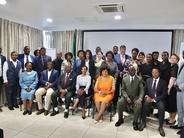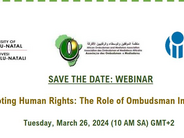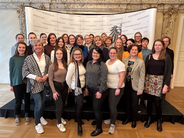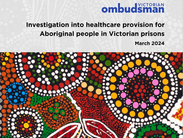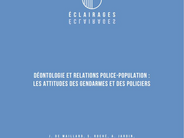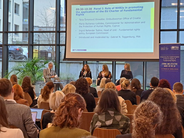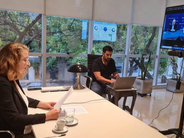Ombudsman warns: Texts in the regulation on electricity prices violate customers’ rights
Date of article: 01/03/2024
Daily News of: 08/03/2024
Country:  Bulgaria
Bulgaria
Author:
Article language: en
Ombudsman Diana Kovacheva sent an opinion to Ivan Ivanov, Chair of the Energy and Water Regulatory Commission (EWRC), regarding the Draft Ordinance amending and supplementing Ordinance No. 1/14 March 2017 on the Regulation of Electricity Prices (OREP) to warn about texts that create preconditions to allow the violation of the electricity customers’ rights.
1 March 2024
Ombudsman Diana Kovacheva sent an opinion to Ivan Ivanov, Chair of the Energy and Water Regulatory Commission (EWRC), regarding the Draft Ordinance amending and supplementing Ordinance No. 1/14 March 2017 on the Regulation of Electricity Prices (OREP) to warn about texts that create preconditions to allow the violation of the electricity customers’ rights.
The Draft provides for the abolition of Art. 9 of the existing OREP to which the EWRC conforms to align the needed earnings and/or prices of each power company for each price period depending on the achievement of the energy quality and service quality targets in the previous year.
Hence, Prof. Kovacheva is firm that the abolition of the cited text would create a precondition to allow the violation of fundamental principles in the exercise of the EWRC’s regulatory powers, one of which is, inter alia, to ensure the measures needed to supply customers with electricity that meets certain quality standards. Further, she emphasizes that the Workgroup’s Report gives no reasons to explain what necessitates the abolition of the mentioned text.
Diana Kovacheva insists on the non-abolition of Art. 9 OREP but on its precision to make it relatable to the EWRC regulated prices for connection to and transmission by the power distribution networks.
“I think I should remind that when a public discussion was held in 2021 on the prices in the electricity sector, the EWRC made a commitment to revise the set of methods of report on and achievement of the targets and control on the electricity quality targets and on the quality of the service of the network operators, public providers and end suppliers (the Methodology) so that quality targets reported do not pertain to the entire licensed territory as this distorts the result. It is necessary to report on certain smaller territories. In this way, it will be clear where a problem exists affecting the quality and respectively where customers should be recompensed for the poor quality of the electricity. However, the Methodology has not been changed to date,” the Ombudsman emphasizes.
She notes that Art. 37d, para 3 provides for the calculation of the component of the end supplier’s price in the event that a basis value has not been determined under para 1. She emphasizes that the Energy Act provides that the determination of the basis value subject to the State Budget Act for the respective year and/or a program adopted by the Council of Ministers shall be an unconditional obligation and not a legal option.
“This is confirmed by the text of Art. 30а, para 3 Energy Act: The household end customer shall pay a price which is the sum of the basis value under Art. 21, para 1, subpara 8c, calculated for the electricity used and the component under para 1.“ In addition, according to Art. 21, para 1, subpara d Energy Act, the forecasted market price of electricity is calculated only to cover the operational costs of the operator of the electricity transmission network and of the operators of the electricity distribution networks. Hence the unlawfulness of the planned amendment to Art. 37б, para 2 of the Draft – “a new subpara 9 about end suppliers”, the Ombudsman writes.
Further, she notes that it is inadmissible to supplement the EWRC powers as laid down in the Energy Act with an ordinance.
“Moreover, the reasoning does not make it clear how the ceiling of the component – up to 7 per cent – was arrived at and what economically justified costs of the end suppliers are included in it,” the Ombudsman emphasizes.
She adds that Art. 37d, para 5 provides that the component shall not exceed the amount of the component determined for the previous price period, adjusted by an inflation index for the previous calendar year based on National Statistical Institute data.
”I object to the application of an inflation index as it takes into account the change in the prices of certain types of goods and services consumed by the households over a certain period of time such as: food; strong and soft drinks; wear and footwear; house furniture; healthcare; entertainment and culture; restaurants and hotels that do not have an immediate and direct impact on the costings of the power companies. The price increase in such a way is not economically validated. Moreover, the provision is not clear as to which index is taken into account – the annual/average annual index,“ Prof. Kovacheva states firmly.
She draws attention to yet another fact: the provision of Art. 37e does not make clear the time limit for the EWRC to provide the information to the Minister of Energy and what information is to be provided for the purpose to determine the basis value.
“According to Art. 37f, para 1, the compensation to cover part of the costs of the household customers is the difference between the achieved weighted average price of the Day-Ahead market segment and the basis value of electricity of 1 MWh that the household customer is to pay and that is determined by the State Budget Act for the respective year and/or program, adopted by the Council of Ministers. This is in reconfirmation of the above stated, viz., that the determination of the basis value is a codified obligation,” Diana Kovacheva emphasizes.
The Ombudsman warns that if the EWRC sticks to the opposite, after a way of calculating the component is proposed in the event that no basis value is determined, it raises bewilderment as to why such a way of calculating the compensation is not provided for. Further, she notes that if there exists no definite basis value, there will not be any calculated compensation either. She adds that there is no prescribed procedure of how and when the compensation will be reflected in the customers’ bills and regarding the possibility to pay for all or part of the electricity bought, the differentiation of the electricity and when these possibilities will be applied.
Further, Diana Kovacheva points out that practically it is not clear which previous year will be taken into account: the year before the 2024-2025 regulatory period or the year before the 2023-2024 regulatory period.
Last but not least, the Ombudsman emphasizes the need to change the general terms and conditions of the power companies, in the part that concerns the information to be provided to household customers in the invoice. She notes that it is necessary to provide for a fast and efficient mode of the payment of compensations to household customers in case of poor quality of the service provided.
”It is also imperative to launch a broad public awareness campaign regarding the enforcement of the new pricing rules for household customers of electricity and to publish/upload sample invoices for household electricity consumption to show the options that the Draft provides for. I expect you to make an objective analysis of what has been set forth and to take the necessary measures to protect the rights of electricity customers,” the Ombudsman concludes.





